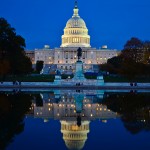Category: Uncategorized
Category: Uncategorized (page 8)
-

New EPA Regulation Could Put the Brakes on Amateur Racing
Is nothing sacred anymore? The U.S. Environmental Protection Agency (EPA) recently proposed a new rule under the Clean Air Act that could end up dealing a significant blow to…
-
The Navajo Nation and the Clean Power Plan
A lot has been written in this space about the potential downsides of the Clean Power Plan (CPP), which is currently being litigated in the courts: rising electricity costs,…
-

What Can We Learn From Germany’s Energy Policies?
Over the past several years, there has been a growing trend among some U.S. policymakers to look toward Europe – and specifically to Germany – as models for responsible energy…
-

As Clean Power Plan is Litigated, More States are “Putting their Pencils Down”
In early February, the U.S. Supreme Court elected to stay implementation of the U.S. Environmental Protection Agency’s (EPA) Clean Power Plan (CPP). This recently finalized regulation – the centerpiece…
-

The Unfunded Mandates Information and Transparency Act (UMITA): Shining a Light on the Hidden Costs of Unfunded Mandates
ALEC hosted a congressional conference call with Congresswoman Virginia Foxx (NC) on Tuesday, February 23. The Congresswoman discussed her sponsorship of the Unfunded Mandates Information and Transparency Act (UMITA), and described UMITA…
-

CMS ‘Reinsurance’ Program Deceives U.S. Treasury Department, Taxpayers
The list of failures, misrepresentations and falsities surrounding the implementation of the Affordable Care Act (ACA) is almost unending. First there was the assurance that under the ACA if Americans…
-

Replacing Your Tablet with a Set Top Box
Many people, especially Millennials, watch television shows on cell phones, tablets or laptops, but they may be forced to watch their programs on a television if Federal Communications Commission Chairman…
-
TPP Creates Footwear of the Future
The final Trans Pacific Partnership (TPP) text is out and the results of economic models are in. TPP will contribute to economic growth and direct employment in the sectors where…
-

Governor Scott Walker Bars Agencies From Preparing for Clean Power Plan
Earlier this month, the U.S. Supreme Court made major headlines when it elected to stay implementation of the U.S. Environmental Protection Agency’s (EPA) Clean Power Plan (CPP). This recently…
-
The New Hampshire Primary Results Project Little Hope in Economic Growth
Because of its varying policies, New Hampshire’s economic priorities are difficult to gauge, which some pundits might suggest make the state a good testing ground for presidential candidates’ platforms. The state’s inherent fiscal inconsistencies might also explain the seemingly irreconcilable gulf between voters’ concerns about the economy and their support for Sanders and Trump.
-
Oregon’s Minimum Wage Bill
With Governor Kate Brown’s signature, Oregon will likely soon rank as having the highest state-set minimum wage in the nation. Currently, the minimum wage in Oregon is $9.25 an…
-
Natural Gas: Promoting Safe, Affordable and Reliable Energy
Recently, the American Gas Association released its 2016 Playbook, a concise description of the tremendous role the natural gas industry currently plays and is poised to continue playing in…
-

Federal Term Limits and the Article V Amendments Convention
Congressional term limits are a priority for the American people. If you live in the United States, you live under a term-limited President, and your Governor is probably term-limited as…
-

Supreme Court Outlook: Energy and Environment
With the recent passing of Justice Antonin Scalia, the current 4-4 ideological split on the U.S. Supreme Court could ultimately help benefit President Obama’s energy and environmental policy agenda. Any…
-

Medical Innovation and the Business of Cures
By bringing cures that will eradicate diseases such as Hepatitis C to market, people are healthier, which leads to less doctor visits, reduces costly hospital stays, and helps patients avoid expensive surgeries such as liver transplants.
-
Making the Internet of Things a Safer Place
The Internet of Things (IoT) is an exciting “place.” Innovators are developing revolutionary technologies that will reshape cars, workplaces, homes and lives. Some of these technologies are even now commonplace.
-
Transfer of Public Lands Is Becoming the Issue du Jour among Presidential Candidates
During the first weeks of the 2016 presidential primary season, presidential hopefuls are offering their views on the topic of transfer of public lands (TPL) giving the issue a higher…
-

Federal Decision Threatens Apple Smartphone Encryption
A decision from a federal United States Magistrate Judge seriously threatens smartphone encryption by requiring Apple to build a “backdoor” to the iPhone for the Federal Bureau of Investigation…
-
Like Beyoncé, San Francisco Is Right To Embrace Innovative Technologies Such As AirBnB
Beyoncé’s Super Bowl halftime show delighted her supporters and football fans alike, and also ignited something of a firestorm in the tech world by posting pictures of her lodging for…
-
A Permanent Internet Tax Freedom Act
It only took 18 painstaking years, but the Internet Tax Freedom Act (ITFA) is close to becoming a permanent reality. By an overwhelmingly bipartisan vote of 75-20, the U.S. Senate…

